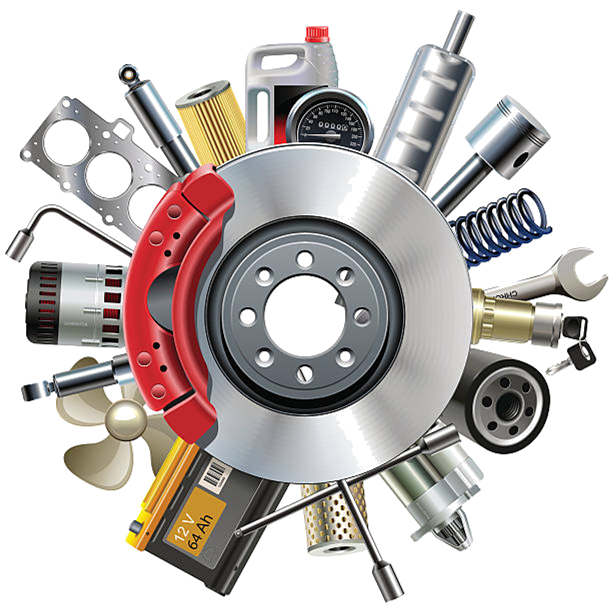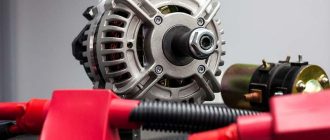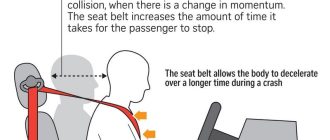
How to Choose Between Original and Aftermarket Spare Parts
When it comes to choosing spare parts for vehicles, one often encounters the dilemma of whether to go for original parts or opt for aftermarket alternatives. This decision can greatly impact the performance, reliability, and cost-effectiveness of your vehicle. So, how do you choose between these options?
Original spare parts refer to parts that are produced by the manufacturer of your vehicle. They are designed and engineered specifically for your make and model, ensuring the best fit and compatibility. The advantage of original parts lies in their quality assurance and reliability. They are usually more expensive compared to aftermarket alternatives, but they guarantee the same level of performance as the parts that came with your vehicle when it was brand new.
Aftermarket spare parts, on the other hand, are produced by third-party manufacturers. These parts are often marketed as more affordable alternatives to original parts. While some aftermarket parts may be of lower quality, there are many reputable aftermarket manufacturers that produce parts that are on par with, or even better than, the original parts. The advantage of aftermarket parts lies in their wider availability and the potential for cost savings. However, it’s important to do thorough research and choose aftermarket parts from reputable manufacturers to ensure their quality and compatibility with your vehicle.
Ultimately, the choice between original and aftermarket spare parts depends on your priorities and budget. If you value the assurance of quality and compatibility, and are willing to pay a premium, then original parts are the way to go. However, if cost savings are more important to you, and you are willing to do the necessary research to find reputable aftermarket manufacturers, then aftermarket parts might be a suitable option for you.
It’s important to note that when it comes to certain critical components, such as safety systems, it is generally recommended to stick with original parts. These components play a crucial role in ensuring the safety of your vehicle and its occupants, so compromising on their quality is not advisable.
In conclusion, choosing between original and aftermarket spare parts requires careful consideration of factors such as quality, compatibility, price, and the specific needs of your vehicle. By weighing these factors and making an informed decision, you can ensure the optimal performance and longevity of your vehicle.
The Importance of Choosing the Right Spare Parts
When it comes to repairing or maintaining your vehicle, choosing the right spare parts can make all the difference. The choice between aftermarket and original parts can greatly affect the performance, reliability, and longevity of your vehicle.
Aftermarket parts are made by third-party manufacturers and are designed to fit and function like the original parts. They are often cheaper than original parts, making them an attractive option for those looking to save money. However, it’s important to consider the quality and compatibility of aftermarket parts, as they may not always meet the same standards as original parts.
On the other hand, original parts are manufactured by the same company that made your vehicle. They are specifically designed and tested to meet the highest standards of quality and performance. While original parts may be more expensive, they provide a level of reliability and compatibility that aftermarket parts may not always offer.
When choosing between aftermarket and original spare parts, it’s essential to consider factors such as the specific needs of your vehicle, your budget, and your overall expectations for performance and reliability.
- Compatibility: Original parts are designed to fit perfectly with your vehicle, ensuring optimal performance and safety.
- Quality: Original parts undergo rigorous testing and are manufactured to the highest standards, ensuring durability and longevity.
- Warranty: Original parts often come with a warranty, giving you peace of mind in case of any issues.
- Price: Aftermarket parts are generally cheaper than original parts, making them a more cost-effective option for some.
- Availability: Aftermarket parts are often more widely available, allowing for easier access and faster repairs.
- Performance: Original parts are specifically designed to deliver the best performance for your vehicle, while aftermarket parts may vary in terms of quality and effectiveness.
In conclusion, choosing the right spare parts for your vehicle is crucial to ensure its optimal performance, reliability, and safety. Consider the specific needs of your vehicle, your budget, and your expectations when deciding between aftermarket and original parts. Remember, it’s always best to consult with a trusted expert or professional to make the most informed decision.
Understanding Original Spare Parts
When it comes to choosing between original spare parts and aftermarket options, understanding what makes original parts unique is essential. Original spare parts are manufactured by the same company that made the vehicle or equipment. They are designed to meet the exact specifications and requirements of the original manufacturer.
Choosing original spare parts ensures that you will get a product that is specifically engineered for your vehicle or equipment. These parts are made using high-quality materials and undergo rigorous testing to ensure reliability and performance.
One of the main benefits of choosing original spare parts is that they offer a perfect fit. They are designed to seamlessly integrate with your vehicle or equipment, ensuring optimal performance and functionality. This perfect fit eliminates the need for modifications or adjustments that may be required with aftermarket parts.
Additionally, original spare parts often come with a warranty from the manufacturer, providing peace of mind and protection against defects or malfunctions. This warranty is often not available with aftermarket options.
It is important to note that original spare parts may be more expensive than aftermarket alternatives. However, the higher price is justified by the superior quality, perfect fit, and warranty that they offer.
In conclusion, understanding the benefits of original spare parts can help you make an informed decision when choosing between original and aftermarket options. They offer a perfect fit, superior quality, and often come with a manufacturer’s warranty. While they may be more expensive, the investment in original spare parts is worthwhile for the long-term performance and reliability of your vehicle or equipment.
Advantages of Original Spare Parts
When it comes to choosing between original and aftermarket spare parts, there are several advantages to opting for the original ones.
Quality Assurance: Original spare parts are manufactured by the same company that produced the vehicle, ensuring the highest quality standards. They are designed to fit perfectly and function optimally, guaranteeing a reliable performance.
Compatibility: Original spare parts are specifically engineered to be compatible with the vehicle they are intended for. They are designed to seamlessly integrate with other components, ensuring smooth operations and minimizing the risk of compatibility issues.
Longevity: Original spare parts are built to last. They are made using superior materials and undergo rigorous testing to ensure durability. By choosing original spare parts, you can expect them to have a longer lifespan compared to aftermarket alternatives.
Warranty: Original spare parts generally come with a warranty from the manufacturer. This provides additional peace of mind, as you can rely on the support and assistance of the company if any issues arise with the part.
Confidence: Opting for original spare parts gives you the confidence that you are choosing the best option for your vehicle. You can trust that the part is of high quality, compatible, and will provide the best performance, ultimately ensuring the longevity of your vehicle.
While aftermarket spare parts may be more affordable, it is important to weigh the advantages of original spare parts. Investing in quality, compatibility, longevity, warranty, and confidence can save you money in the long run by reducing the likelihood of breakdowns and extending the life of your vehicle.
Disadvantages of Original Spare Parts
When choosing between spare parts, one common option is to go for original spare parts. While they may seem like the ideal choice, there are several disadvantages associated with them:
| Higher cost: | Original spare parts are often priced higher compared to aftermarket options. This can significantly increase the overall cost of repairs or maintenance. |
| Limited availability: | Obtaining original spare parts can be challenging, especially for older or less popular models. This can lead to longer waiting times and delays in fixing the vehicle. |
| Exclusive distribution: | Original spare parts are often sold exclusively through dealerships or authorized retailers. This limits the options for sourcing and can restrict competition, leading to higher prices. |
| Brand dependency: | Choosing original spare parts means sticking to the brand of the vehicle. This may limit the options for customization or finding alternative solutions that better suit the individual’s needs. |
| Delays in availability: | Manufacturers may take longer to introduce new spare parts to the market, leading to delays in availability. This can be especially problematic for urgent repairs. |
Considering these disadvantages, it’s important to carefully assess the cost and availability of original spare parts before making a decision. Alternative options, such as high-quality aftermarket parts, may provide a more cost-effective and readily available solution for many car owners.
Understanding Aftermarket Spare Parts
When it comes to choosing between original and aftermarket spare parts, it is important to understand what aftermarket spare parts are and how they differ from original parts. Aftermarket spare parts are produced by companies other than the original manufacturer of the vehicle or equipment. These parts are designed to be a direct replacement for the original parts and are made to the same specifications and performance standards.
One of the main advantages of aftermarket spare parts is that they are generally more affordable than original parts. This is because aftermarket manufacturers do not have the same overhead costs as the original equipment manufacturer (OEM). They can often offer the same quality at a lower price point, making them an attractive option for cost-conscious buyers.
Another benefit of aftermarket spare parts is that they often offer a wider range of options compared to original parts. Aftermarket manufacturers have the flexibility to design and produce parts that may not be available from the original manufacturer. This means that you have more choice when it comes to selecting the right part for your vehicle or equipment.
However, it is important to note that not all aftermarket spare parts are created equal. The quality of aftermarket parts can vary depending on the manufacturer. It is always recommended to choose aftermarket parts from reputable manufacturers with a track record of producing high-quality products. Reading customer reviews and seeking recommendations from experts can also help in making an informed decision.
In conclusion, understanding aftermarket spare parts and their benefits is crucial when choosing between original and aftermarket parts. While aftermarket parts can offer cost savings and a wider range of options, it is important to research and choose reputable manufacturers to ensure the quality and compatibility of the parts.
Advantages of Aftermarket Spare Parts
When it comes to choosing between original and aftermarket spare parts, there are several advantages to consider when opting for aftermarket options:
|
1. Cost-effective: |
Aftermarket spare parts are usually more affordable compared to original parts. This is because aftermarket manufacturers have lower overhead costs and can pass on the savings to consumers. |
|
2. Availability: |
Aftermarket parts are often more readily available than original parts. They can be purchased from various suppliers, both online and offline, making it easier to find the specific part you need. |
|
3. Wide range of options: |
Aftermarket manufacturers offer a wide range of options for spare parts, giving you more choices compared to original parts. This can be particularly beneficial if you are looking for a specific feature or customization. |
|
4. Quality: |
While original parts are often associated with higher quality, aftermarket manufacturers have stepped up their game in recent years. Many aftermarket parts are now manufactured using high-quality materials and meet or exceed industry standards. |
|
5. Warranty: |
Contrary to popular belief, aftermarket spare parts can come with warranties. This provides consumers with peace of mind knowing that they are protected in case the part malfunctions or fails. |
Ultimately, the decision between original and aftermarket spare parts depends on your specific needs and budget. While original parts may offer certain advantages, aftermarket options provide a cost-effective and accessible alternative that is worth considering.
Disadvantages of Aftermarket Spare Parts
While aftermarket spare parts may seem like an attractive option due to their lower prices, there are several disadvantages to consider when choosing between original and aftermarket parts.
- Quality concerns: Aftermarket parts are often produced by third-party manufacturers, which can result in variations in quality. Unlike original parts that are designed and tested by the vehicle manufacturer, aftermarket parts may not meet the same quality standards.
- Compatibility issues: Since aftermarket parts are not made specifically for a certain make and model, there is a higher risk of compatibility issues. It may not fit properly or function as intended, leading to additional repairs or even safety hazards.
- Warranty concerns: Using aftermarket parts can also affect the warranty of your vehicle. Some vehicle manufacturers may void the warranty if non-original parts are installed, leaving you responsible for any future repairs or damages.
- Limited availability: While original parts are widely available at authorized dealerships, aftermarket parts may be more difficult to find, especially for older or rare models. This can lead to longer wait times for repairs.
- Unknown origin: Aftermarket parts may come from various sources, including unregulated manufacturers. This means there is less transparency about their origin and manufacturing processes, which can be a concern for those who prioritize transparency and accountability.
- Lower resale value: When it comes time to sell your vehicle, having a combination of original and aftermarket parts can lower its resale value. Buyers may prefer a vehicle with original parts, as they are seen as more reliable and trustworthy.
Considering these disadvantages, it is important to carefully weigh the pros and cons when deciding whether to choose original or aftermarket spare parts for your vehicle.
Factors to Consider When Choosing Between Original and Aftermarket Spare Parts
When it comes to repairing or replacing parts for your vehicle, you will often have the choice between original equipment manufacturer (OEM) parts and aftermarket parts. This decision can have a significant impact on the performance and longevity of your vehicle. Here are some important factors to consider when choosing between original and aftermarket spare parts:
Quality:
One of the key factors to consider is the quality of the parts. OEM parts are made by the same manufacturer as the original parts that came with your vehicle. This means that they are designed to meet the exact specifications and standards of the original parts. Aftermarket parts, on the other hand, are made by third-party manufacturers. While some aftermarket parts may have similar quality to OEM parts, others may be of lower quality. It is important to do your research and choose a reputable aftermarket brand if you decide to go this route.
Compatibility:
Another important factor to consider is the compatibility of the parts. OEM parts are designed to fit your vehicle perfectly, ensuring optimal performance and safety. Aftermarket parts, on the other hand, may not always have the same level of compatibility. They may require modifications or adjustments to fit correctly. It is important to check compatibility before purchasing aftermarket parts to ensure they will work with your vehicle.
Cost:
Cost is often a significant factor when choosing between original and aftermarket spare parts. OEM parts are generally more expensive than aftermarket parts. However, this higher cost can be justified by the higher quality and better compatibility of OEM parts. Aftermarket parts are typically more affordable, making them a popular choice for those on a tight budget. It is important to weigh the cost against the quality and compatibility factors before making a decision.
Warranty:
Another important consideration is the warranty offered with the parts. OEM parts usually come with a warranty from the manufacturer, providing peace of mind in case of any issues or defects. Aftermarket parts may have warranties provided by the manufacturer or the retailer, but these warranties may vary in terms of coverage and duration. It is important to understand the warranty terms before purchasing the parts.
Personal preference and requirements:
Finally, personal preference and individual requirements should also be taken into account when choosing between original and aftermarket spare parts. Some people may have a preference for OEM parts due to their perceived higher quality and compatibility. Others may prioritize cost savings and choose aftermarket parts. It is important to assess your own needs and priorities before making a decision.
In conclusion, choosing between original and aftermarket spare parts requires careful consideration of factors such as quality, compatibility, cost, warranty, and personal preference. It is important to weigh these factors and make an informed decision that meets your specific needs.
Expert Tips for Choosing the Right Spare Parts
When it comes to choosing between original and aftermarket spare parts, it can be a tough decision. Here are some expert tips to help you make the right choice:
| Spare | Choose | Parts |
| Understand your needs | Research and compare | Consider the price |
| Identify the required part | Check the specifications | Ensure compatibility |
| Evaluate quality and performance | Read reviews | Seek professional advice |
| Consider warranty | Look for reputable suppliers | Weigh the pros and cons |
By following these expert tips, you can make an informed decision when choosing between original and aftermarket spare parts. Remember to prioritize your specific needs and requirements to find the right parts for your vehicle or equipment.
Additional Resources
If you still have questions about choosing the right spare parts for your vehicle, there are several additional resources you can consult:
| 1. | Check the vehicle’s owner manual: This will often provide specific recommendations for the types of spare parts that are recommended for use in the vehicle. |
| 2. | Consult a trusted mechanic: A professional mechanic will have experience and knowledge in choosing the best parts for your vehicle and can provide valuable advice. |
| 3. | Read online reviews: Many websites and forums dedicated to car enthusiasts and vehicle maintenance offer reviews and recommendations on different spare parts brands and options. |
| 4. | Join online communities: Engaging with fellow car owners and enthusiasts can provide you with insights and experiences in choosing spare parts. |
| 5. | Visit manufacturer websites: Most vehicle manufacturers have official websites that provide information on authorized spare parts and where to purchase them. |
By using these additional resources, you can gather the information you need to make an informed decision between original and aftermarket spare parts.
Question-answer:
What are the advantages of using original spare parts?
Using original spare parts ensures that you are getting a product that is specifically designed for your vehicle. These parts are made by the same manufacturer that built your car, so they are guaranteed to fit and function properly. They are also usually made with higher quality materials and are more durable than aftermarket parts.
Are there any disadvantages to using original spare parts?
The main disadvantage of using original spare parts is the cost. Since these parts are made by the original manufacturer, they are often more expensive than aftermarket parts. Additionally, sometimes it can be more difficult to find and purchase original parts, especially if your vehicle is older or less common.
Why would someone choose aftermarket spare parts over original ones?
There are a few reasons why someone might choose aftermarket spare parts. One reason is cost. Aftermarket parts are usually cheaper than original ones, which can be appealing if you are on a tight budget. Additionally, aftermarket parts are often more readily available, especially for older or less common vehicles.
What are the potential drawbacks of using aftermarket spare parts?
One potential drawback of using aftermarket spare parts is the quality. Since these parts are made by different manufacturers, the quality can vary significantly. Some aftermarket parts may not fit or function properly, leading to issues with your vehicle. Additionally, aftermarket parts may not be covered by the same warranty as original parts.
Is there a way to ensure the quality of aftermarket spare parts?
To ensure the quality of aftermarket spare parts, it is important to do your research and purchase from reputable manufacturers or distributors. Reading reviews and checking for certifications can also help you determine the quality of a particular part. Additionally, consulting with a trusted mechanic or automotive expert can provide valuable insights and recommendations.






